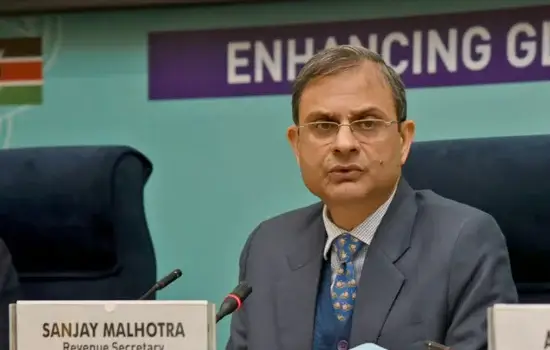India has appointed Sanjay Malhotra, the current Revenue Secretary, as the new Governor of the Reserve Bank of India (RBI), succeeding Shaktikanta Das. Malhotra, an Indian Administrative Service (IAS) officer with over three decades of experience, will begin his three-year term on December 11, 2024.
Professional Background
Born on February 14, 1968, in Bikaner, Rajasthan, Malhotra holds a Bachelor of Technology degree from the Indian Institute of Technology (IIT) Kanpur and a Master of Public Policy from Princeton University. His career includes significant roles such as Secretary in the Department of Financial Services and Chairman and Managing Director of the Rural Electrification Corporation.
Economic Context

Malhotra’s appointment comes at a time when India’s economy is grappling with slowing growth and persistent inflation. The country’s GDP growth decelerated to 5.4% in the third quarter, marking the slowest pace in two years. Inflation has consistently exceeded the RBI’s upper target of 6%, prompting debates over monetary policy direction.
Market Reactions
The announcement has led to market speculation about potential shifts in monetary policy. The Indian rupee fell to a record low of 84.80 against the U.S. dollar, reflecting expectations of a more accommodative stance under Malhotra’s leadership. Analysts anticipate possible interest rate cuts in the near future to stimulate economic growth.
Policy Implications
Malhotra’s extensive experience in finance and taxation positions him to navigate the complex economic landscape. His leadership is expected to focus on balancing inflation control with measures to spur growth, addressing both domestic and global economic challenges.
Conclusion
As Sanjay Malhotra assumes the role of RBI Governor, his approach to monetary policy will be pivotal in steering India’s economy through its current challenges. Stakeholders will closely monitor his strategies to foster stability and sustainable growth.
Hina Abbasi is Editor and a passionate sports and entertainment content writer at WinnersMaze.com. Hina’s expertise spans across a wide range of sports, and interest in many TV shows allowing her to deliver insightful analysis and compelling stories that resonate with readers.

